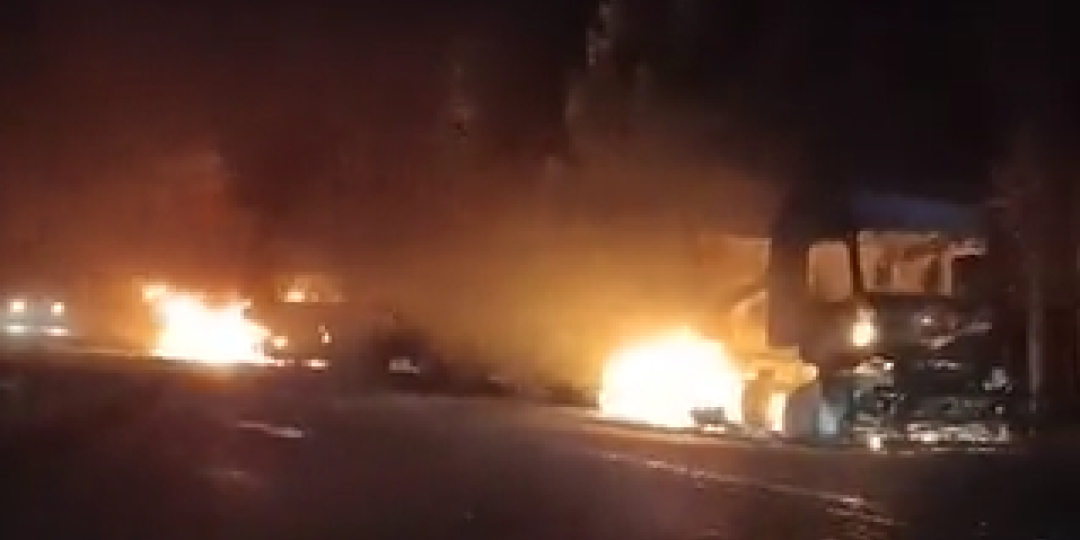Roadblocks have been established along the country’s critical national arteries to arrest the spread of arson attacks against heavy vehicles.
Following the torching of nine trucks on the N3 and N4, for reasons that remain unclear, it emerged this morning that two more trucks had been gutted on the N2 outside Empangeni in KwaZulu-Natal – entrenching speculation it might be an orchestrated campaign.
The three incidents took place in the space of 48 hours.
The National Commissioner of Police, Lieutenant General Fannie Masemola, said they have not established exactly what the motives for the actions are.
He would not speculate on the possibility that the sudden surge in truck burning was once again linked to the employment of foreign nationals as drivers. This issue allegedly underpinned the actions two years ago where truck burnings turned into weeks of lawlessness, leaving 36 dead and causing billions of losses to the logistics industry operating in Gauteng and KZN.
“Trucks torched involved drivers who were foreign and local,” he said.
He could not give a time frame for the roadblock deployment but expected it would take about two weeks to sort out the problem.
Zolile Poswa, head of Safety and Security for the City of uMhlathuze, said the N2 torching closed one access road to Richards Bay and had traffic authorities redirecting traffic to alternative routes to try to keep traffic flowing. The road where the torching took place.
Flow was eased on Tuesday morning.
Shortly after the torching, traffic ground to a complete halt, with reports coming through indicating that traffic had been at a standstill for hours.
Meanwhile, the Road Freight Association chief executive officer Gavin Kelly said, in a TV interview, that there are a number of possible reasons for the targeting of road freight, a practice which has been ongoing for some time without strong enough or urgent intervention by government.













